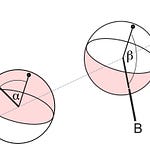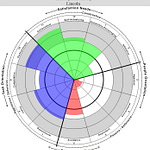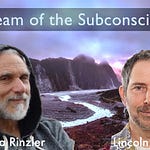“Virtue is the state of mind which tends to make the whole of life harmonious.”
— Zeno (c.490 – c.430 BCE)
Quality
There is perpetual strife, poverty, inequity, and avoidable misfortune in the world. Things may have improved over the centuries, but have individuals changed? Few people seem concerned with the quality of themselves. Virtue is hard to measure and its benefits unclear.
Virtue falls within the province of religions as they offer blueprints for virtue. Religions admonish individual thought and prescribe group behavior. Looking at congregations as an outsider, I see congregants working for each other’s benefit. I still hear the same enmities between groups, but expressed more quietly. Religion disrespects outsiders and, even within the congregation, piety can be thin.
As a staunch individualist, I find religions abhorrent, yet I see congregations behaving respectful, as long as the disagreements are limited. Religions claim piety improves one’s character, but I don’t believe it. There are just as many religious as irreligious liars, criminals, exploiters, abusers, and psychopaths.
Self Worth
I’m a therapist; people come to me with problems. I consider these to be honest people because I won’t work with those who are not. But honesty is relative to what concerns you, and everyone is selective in their concerns and disclosures.
I have clients who think badly of themselves and others who question their decisions, but I have yet to work with a client who wants to improve their goodness. This isn’t the way anyone phrases their problems. This could reflect the prejudice people bring in seeing me as a problem solver.
No one says, “My problem is that I’m not good enough.” They might feel bad and they might be depressed, but the problem is how they feel, not what they are. I have yet to hear anyone says, “I’d feel better if I was a better person.”
We don’t have a definition of self worth. It’s one of those things that we think we’d recognize, but no one is sure they’ve seen it. The concept is absent and so uncertain that we should stop talking about it.
We might replace self worth with having confidence in one’s ability to avoid trouble and resolve problems, but this is also weakly understood. Regardless of your confidence, the past is over and the future is uncertain. You might aim for better solutions in the future, or to better navigate similar opportunities, but that occurs for only the most restricted life, and a restricted life is unhappy.
If you’re interested in learning and growing, then schedule a free, zoom call at:
https://www.mindstrengthbalance.com/schedule15
Being Effective
Replace self worth and self confidence with a conviction to be effective in the future. Being effective is both pragmatic and demonstrable. Being effective can include being loving, emotional, stern, or detached. We can consider our efficacy in the context of the situations we encounter.
By listing what our future situations will be, we can come up with a useful profile of ourselves. Efficacy provides a description that is defensible, falsifiable, and improvable. Every client’s problem can be recast as the question of how effective they are. Here are the areas that test a person’s effectiveness. I invite you to rate yourself.
Chaos
Chaos is the realm of change. It encroaches when change is needed. Don’t invite chaos unless change is wanted. When it appears, consider why.
Navigating chaos requires subtle perceptions and actions. Small changes can have large effects in chaotic systems. You would like those changes to be positive.
Look for the positive, not the predictable. The nature of chaos and change involves the unpredictable, so you had best make space for it and be able to deal with it. Tame your reflexive inclinations. Reflect before you act. Even after you act, take actions that you can undo or redirect.
Sanity
We call normal behavior sane. We don’t define it beyond this. It’s all in the appearances and behaviors. Normal behavior is predictable and prescribed. Other people want you to be normal because it makes their lives easier, not yours. In many situations, normality is not good, but you’d be considered abnormal if you said so.
Sanity is a large container, much like a membrane. We don’t look carefully at what’s inside it because we don’t care. We focus on the process and the result, not the mechanisms. To take sanity apart, to isolate it’s separate components, reveals processes that are no longer recognizable as normal. The parts do not appear sane. They do not behave in “normal” ways.
Your nighttime dreams consolidate your thoughts and feelings. You rarely dream about normal things, and the thinking you do in dreams can hardly be called sane. Sanity is a label for how we behave. It poorly describes how we think because we must think outside the box of sanity if we are to have some self-control when we reach our limits.
Pathology
Isn’t it strange that we equate insanity with pathology? Much of our inner thinking—our passing thoughts, dreams, and emotions—would appear insane in normal conversation and be destructive if taken out of context. How would you know the sanity of doing something unless, in some shape or form, you considered doing it?
We intellectually appreciate that to understand what’s good we must understand what’s bad. We tread this emotional boundary all the time but socially we rarely allow it.
We are culturally unskilled in controlling what’s bad. There are few places where we’re encouraged to experience what’s negative or destructive in order to learn to control it. Certainly not in school and rarely in business.
Instead, we’re told to banish it. The destruction returns in the chaos, the marketplace, unquestioned activity, poor decisions, and group behavior. Is this pathology or stupidity? How would you know the difference?
Control
Chaos is seen as a consequence of existing in a changing world. It’s unavoidable because things change unpredictably. It’s dangerous because it’s unreasonable, which is beyond what reasonable minds can navigate.
People don’t appreciate unreasoned, emotional thinking, which is unfortunate. Intuition develops from a collaboration between our deductive minds and our unreasoned, emotional thoughts.
“The brain evolved to be uncertainty-averse. When things become less predictable—and therefore less controllable—we experience a strong state of threat... [This] leads to decreases in motivation, focus, agility, cooperative behavior, self-control, sense of purpose and meaning, and overall well-being.”
— Heidi Grant and Tal Goldhamer (2021), psychologists
Change
An article in Forbes magazine cautions:
Change is not optional, and the challenges leaders confront are complex.
Chaos causes organizational leaders to lose confidence and strategic focus.
Operating without confidence and focus is dangerous.
Chaotic leadership teams miss opportunities to predict and mobilize (and) end up reacting to change instead.
This makes no sense. If chaos is necessary one should deal with it rather than try to repress it. And since chaos is unpredictable, we must have ways to successfully react to it. To do otherwise is to try to create greater rigidity within the organization in response to an unstoppable force.
Control offers uncertain value in chaotic situations. It’s value depends on what’s being controlled. If control is based on erroneous predictions, it’s not helpful. If it supports critical functions, it is helpful.
In times of chaos control, which is usually focused on outside events, must turn inward. That is why bacteria create a cyst around themselves when under stress. This creates an impermeable barrier in order to maintain homeostasis. To deal with uncertain change you must know what’s valuable. Knowing what’s valuable is the foundation of virtue.
Stability
Whitewater rafting is an exercise in managing chaos, but the lesson is often overlooked. Chaos is not managed when the boat is guided around obstacles without disruption. That’s avoiding chaos. Chaos is managed when the boat is enveloped in uncertainty. Managing chaos means surviving and adapting to real opportunity, it means the boat is overturned.
How much of your navigation is avoidance and how much is engagement? And how much of your engagement is fully experienced to the limit of what’s possible? Admit that you value protection first and opportunity second.
Everyone’s disasters are different, as are their opportunities. My unstable second wife does not understand protection or opportunity, and this leads to repetitive situations where both are lost. Stability is essential because all full lives are lived at the edge of it. We are all fishermen in a chaotic sea.
Emotion
Emotion is a holistic appreciation. We employ several emotions as we express several selves. Rational chaos is when we’re confused. Emotional chaos is when we’re out of control.
Emotions are considered chaotic to the rational mind, but this is an error. Emotions are larger than rational forces and cannot be avoided. They are the first step outside of reason and are a necessary extension to any rational plan. Rational understanding is provisional; emotional understanding is inclusive. Emotions act as counselor and oracle.
“Never apologize for showing feeling. When you do so, you apologize for the truth.”
— Benjamin Disraeli, Prime Minister of the UK
Communication
Communication is the process of the interaction between the parts. Non-communication is total indifference, disconnection, or absence. Being responsive is communicating.
Equal, two-way communication is rare. It fosters alignment, equality, parallel effort, and like-mindedness. This increases our effects but obscures differences, and differences are essential. Foster asymmetric communication as it recognizes and supports differences.
Don’t insist on being understood for what you mean, rather accept how you’re understood. Rational communication is provisional; emotional communication is inclusive.
We avoid emotional communication because it’s easily misunderstood, yet it contains more truth than any reasonable conversation. Practice being emotional and then explain yourself. You’ll find out who really cares and who has something authentic to give you.
Alignment
Alignment refers to being in a symbiotic relationship, it does not mean parallel. Things that are aligned are in different orientations. They have points of similarity. A greater appreciation of alignment allows for a greater understanding of the reasons for misalignment. You need both because both occur in growth. If you want to change and grow, then take responsibility for many aspects of your alignment.
Trust
You want the parts of a relationship to know their roles and gravitate toward them. You can enhance the parts, if they’re willing. You can support their relationships, if you understand them. You can strengthen the container, if you appreciate the needs and the details of its boundaries.
You cannot be solely responsible for everything unless you are omniscient, and as you are not, you must trust the components to navigate themselves. The components must adapt to their own fine-grained chaos, and you must trust that they can.
This is why it’s essential to maintain a positive, nurturing environment. You cannot defend or enforce every aspect of yourself. You will do what you can, but in a changing environment novelty always threatens. Eliminate the toxins from the elements of your environment.
These ideas apply to the people within yourself as much as those in a business or organization. Manage your inner chaos through self-trust and self-alignment. Enlighten your inner people first. It comes down to optimal adaptation, but you can call it virtue.
References
Byrnes, Kelly. 2018. “Seven Ways To Prevent The Dangers Of Organizational Chaos.” Forbes Coaches Council. https://www.forbes.com/councils/forbescoachescouncil/2018/09/18/seven-ways-to-prevent-the-dangers-of-organizational-chaos/
Grant, Heidi, and Tal Goldhamer. 2021. “Our Brains were Not Built for This Much Uncertainty.” Harvard Business Review (September 22). https://hbr.org/2021/09/our-brains-were-not-built-for-this-much-uncertainty













